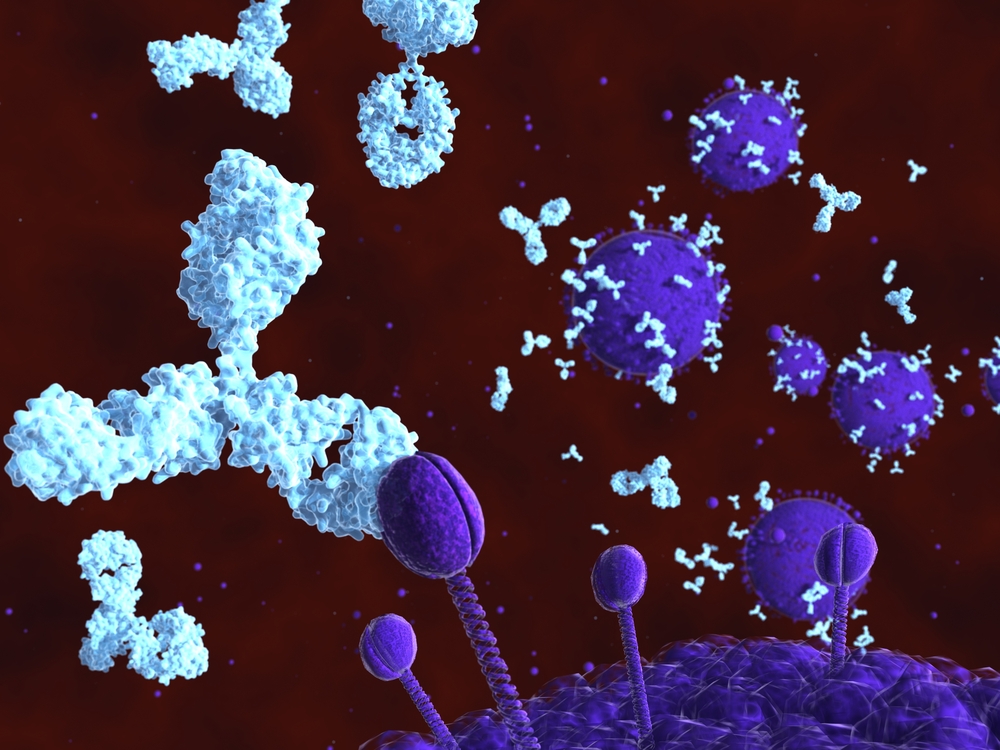Does SARS-CoV-2 Utilize Antibody-Dependent Enhancement (ADE)?
Antibody-dependent enhancement (ADE) is a paradoxical phenomenon in host-pathogen biology, in which, antibody, as an important pillar of the host defense against invading pathogens, actually helps pathogens enter host cells. This rebellious behavior of the antibody further weakens the host’s defense system, and thus creates an environment conducive to the growth of pathogens, thereby exacerbating disease in the host. This phenomenon has a profound impact on disease control and prevention, as the antibodies produced to protect the host may actually help the pathogen. Likewise, antibodies induced by vaccination may actually increase the risk and/or severity of disease in subsequent host-pathogen encounters.
Previous studies in animal models have shown that in SARS-CoV infection, anti-S protein neutralizing antibodies (anti-S-IgG) can cause severe lung injury by altering inflammatory responses In Chinese macaques vaccinated with SARS-CoV S protein, acute lung injury is more pronounced than in unvaccinated control animals, which show only mild to moderate lung inflammation. Consistent with this observation, adoptive transfer of purified anti-S-IgG antibody to macaques, although it reduced the viral load in subsequent SARS-CoVPUMC challenge, resulted in acute diffuse alveolar injury in all infected animals, while in the control group, only mild to moderate inflammation in the lungs was observed. Similar observations of lung damage caused by SARS-CoV vaccines have also been reported in animal models such as mice and African green monkeys. These animal studies suggest that despite viral suppression, the presence of anti-S-IgG antibody in the acute stage of SARS-CoV infection can actually cause severe acute lung injury. Investigators speculate that the possible underlying mechanism may be related to the antibody-dependent enhancement of viral infection. The phenomenon of ADE was discovered in flaviviruses during the 1960s-1970s. While observational studies on dengue virus (DENV) infection revealed a significant association between severe illness and antibody responses in the secondary infection.
The mechanism of ADE involves changes in the functional polarization of alveolar macrophages, the accumulation of proinflammatory monocyte/macrophage and the production of MCP-1 and IL-8. Such anti-S-IgG-induced proinflammatory responses appear to be mediated by the binding of the virus-anti-S-IgG complex to the Fc receptors (FcR) present on monocytes/macrophages, as FcR reduces the production of inflammatory cytokines. The virus-anti-S-IgG complex may additionally activate the classical pathway of the complement system, resulting in cellular damages, although this has not been studied. Alternatively, antibody-dependent cell-mediated cytotoxicity (ADCC) may also be involved.
ADE phenomenon is of great significance for the use of antiviral immunoglobulins as therapy against viral infection, due to the associated risk of enhancing disease. ADE also poses a major challenge for the implementation of vaccination programs, as vaccine-induced antibodies may enhance subsequent viral infection, thereby exposing vaccine recipients to the increased risk of severe disease. There is currently no effective treatment for the fatal inflammatory responses and acute lung injury caused by SARS-CoV-2 infection. In view of the similarity between SARS-CoV-2 and SARS-CoV, we discuss the mechanism of SARS-CoV-mediated inflammation here, it will bring inspiration to the clinical treatment of SARS-CoV-2.
References
- Fu, Y. et al.; Understanding SARS-CoV-2-Mediated Inflammatory Responses: From Mechanisms to Potential Therapeutic Tools. Sin.2020. https://doi.org/10.1007/s12250-020-00207-4.
- Kulkarni R. Antibody-Dependent Enhancement of Viral Infections. In: Bramhachari P. V. (ED.). Dynamics of Immune Activation in Viral Diseases. Springer, 2020. https://doi.org/10.1007/978-981-15-1045-8_2.
- Ricke, D.O. et al.; Medical Countermeasures Analysis of 2019-nCoV and Vaccine Risks for Antibody-Dependent Enhancement (ADE). Preprints, 2020. doi: 10.20944/preprints202003.0138.v1.
- Liu, L. et al.; Anti–spike IgG causes severe acute lung injury by skewing macrophage responses during acute SARS-CoV infection. JCI Insight, 2019, 4(4). doi:10.1172/jci.insight.123158.
- Bolles M. et al.; A double-inactivated severe acute respiratory syndrome coronavirus vaccine provides incomplete protection in mice and induces increased eosinophilic proinflammatory pulmonary response upon challenge. J Virol. 2011, 85: 12201-12215.
- Clay C. et al.; Primary severe acute respiratory syndrome coronavirus infection limits replication but not lung inflammation upon homologous rechallenge. J Virol. 2012, 86: 4234-4244.
- Tseng C. T. et al.; Immunization with SARS coronavirus vaccines leads to pulmonary immunopathology on challenge with the SARS virus. PLoS ONE, 2012, 7: e35421.
- Halstead S. B. et al.; Hemorrhagic fever in Thailand: recent knowledge regarding etiology. Jpn J Med Sci Biol. 1967, 20: 96-103.
- Taylor A. et al.; Fc receptors in antibody-dependent enhancement of viral infections. Immunol Rev. 2015, 268(1): 340-364.


Your email address will not be published. Required fields are marked *